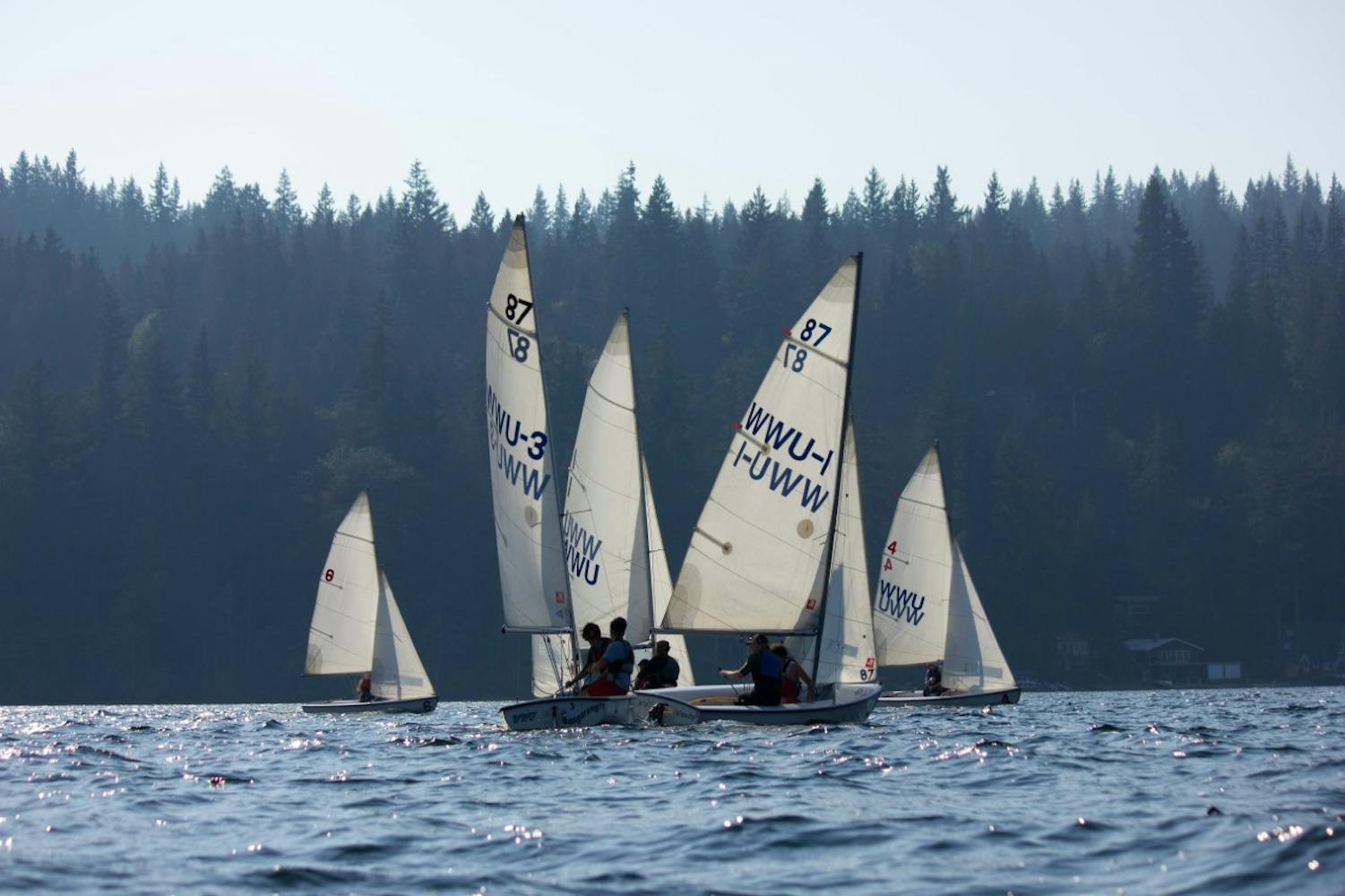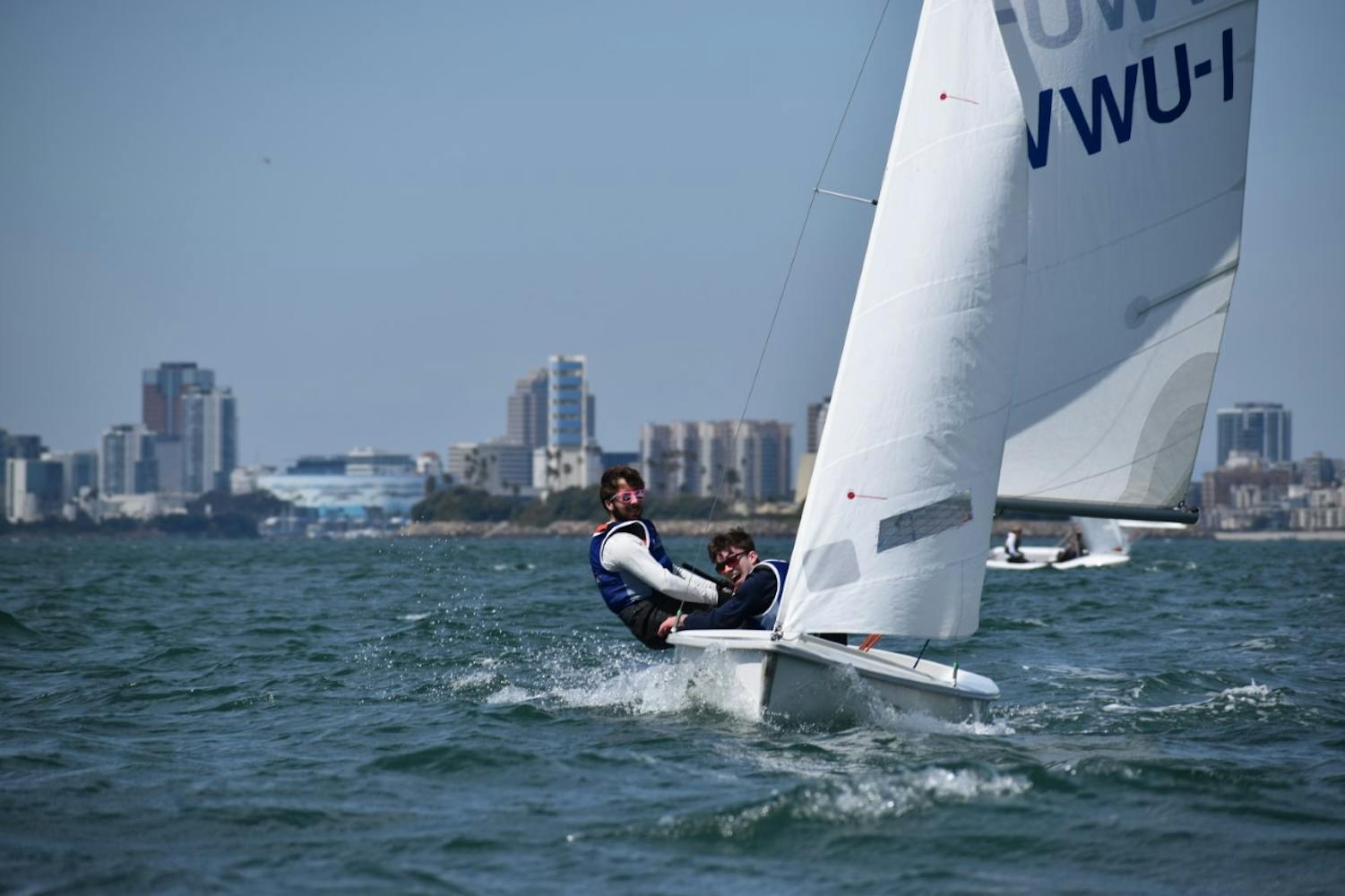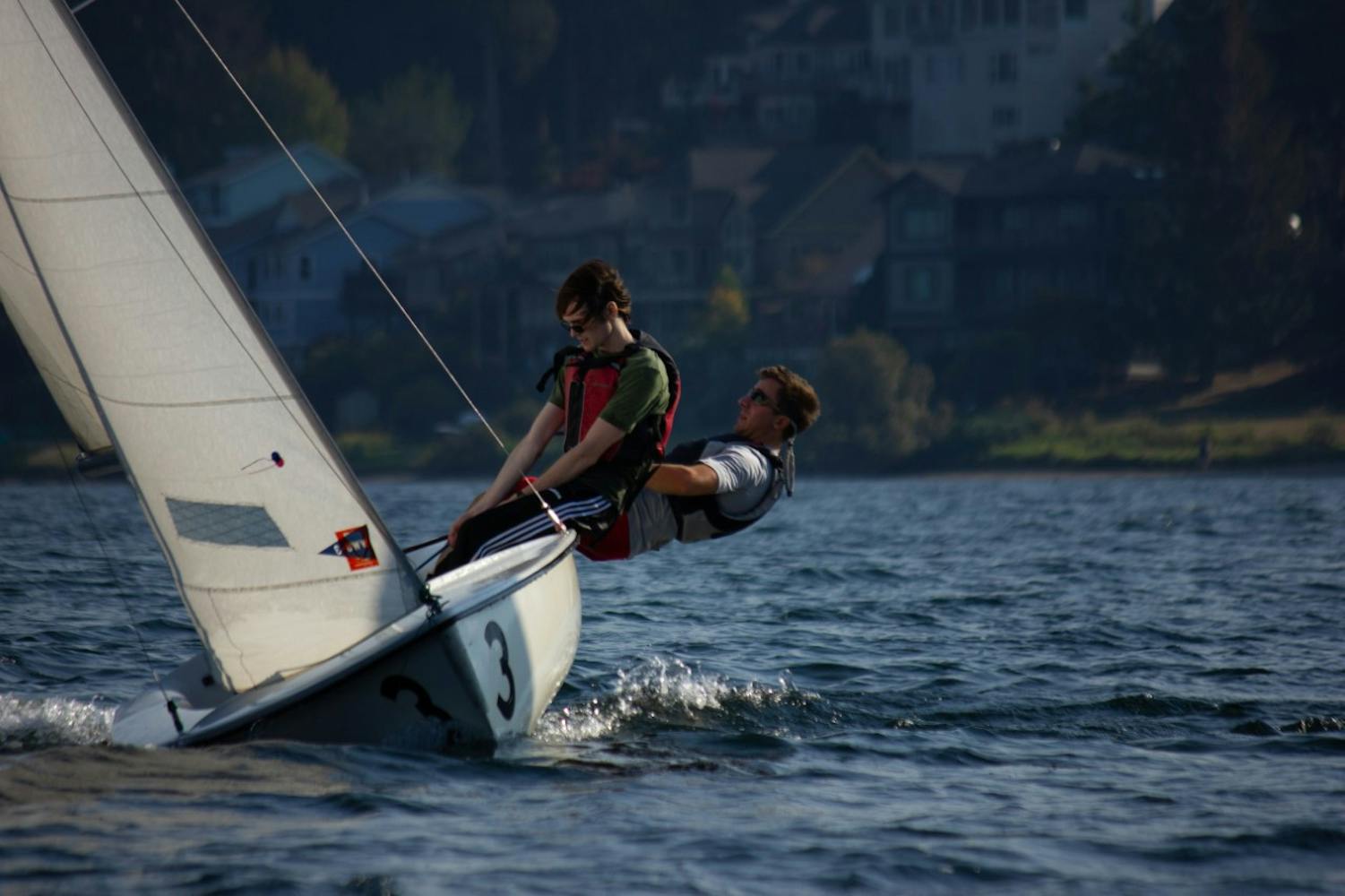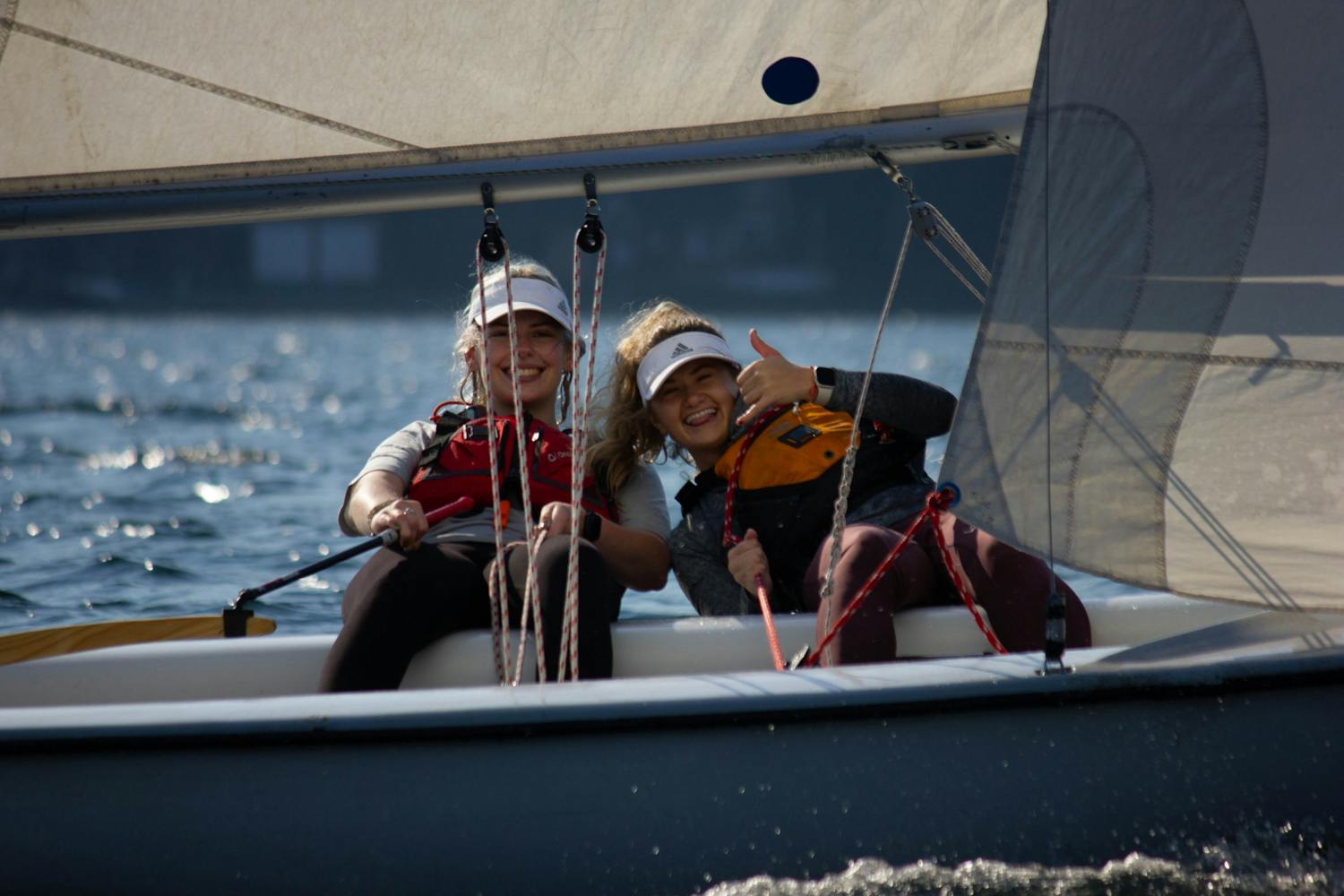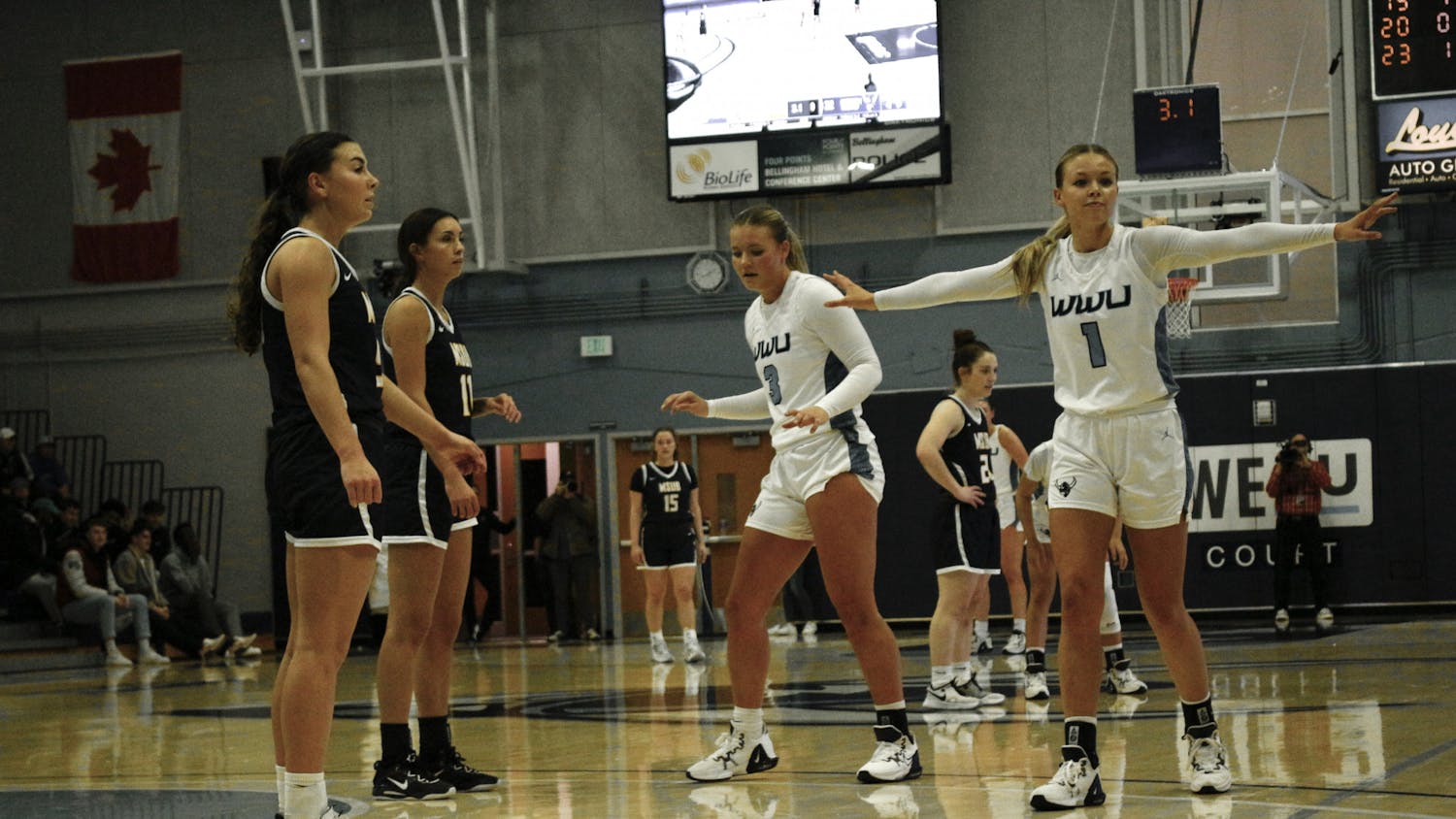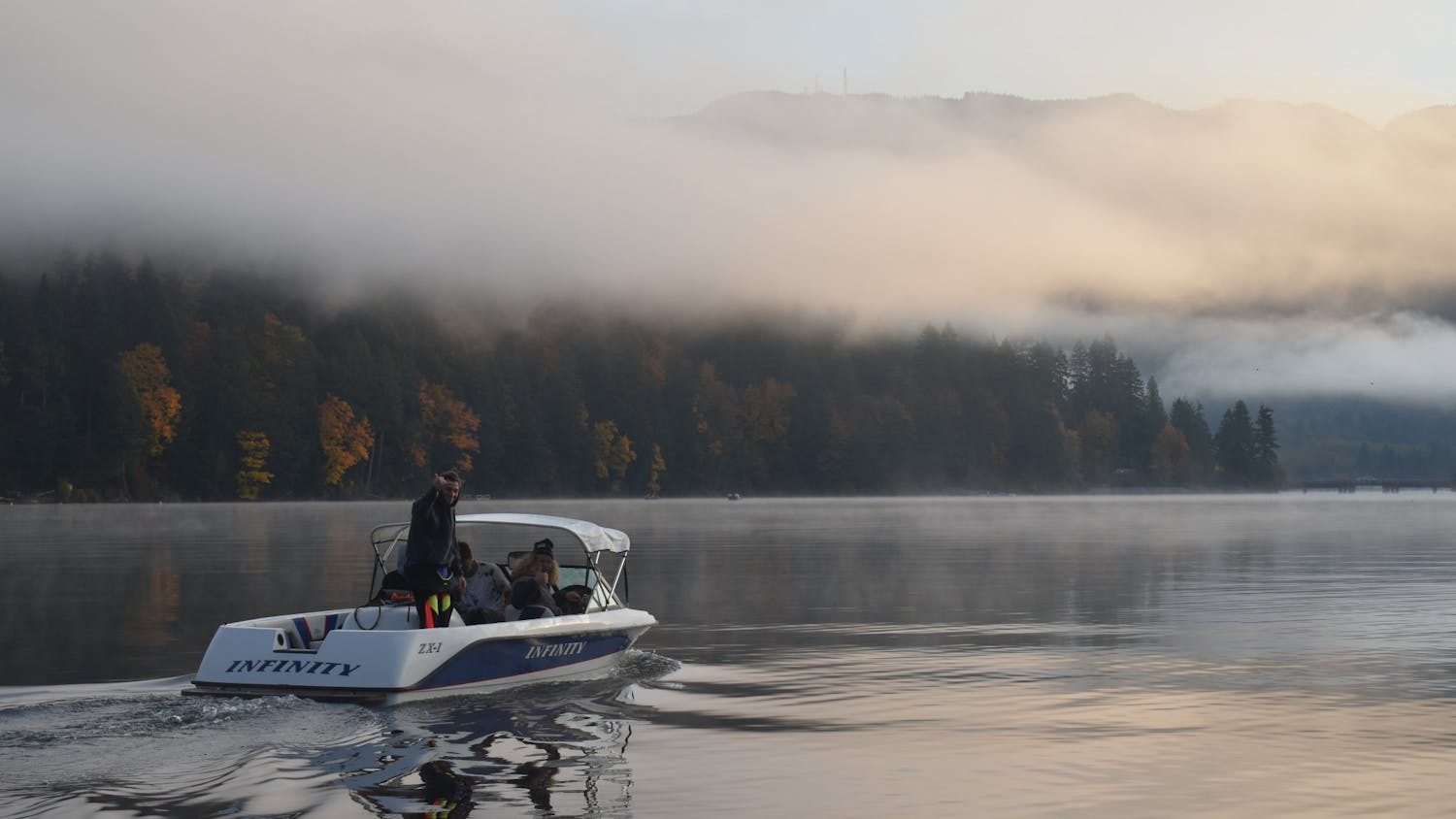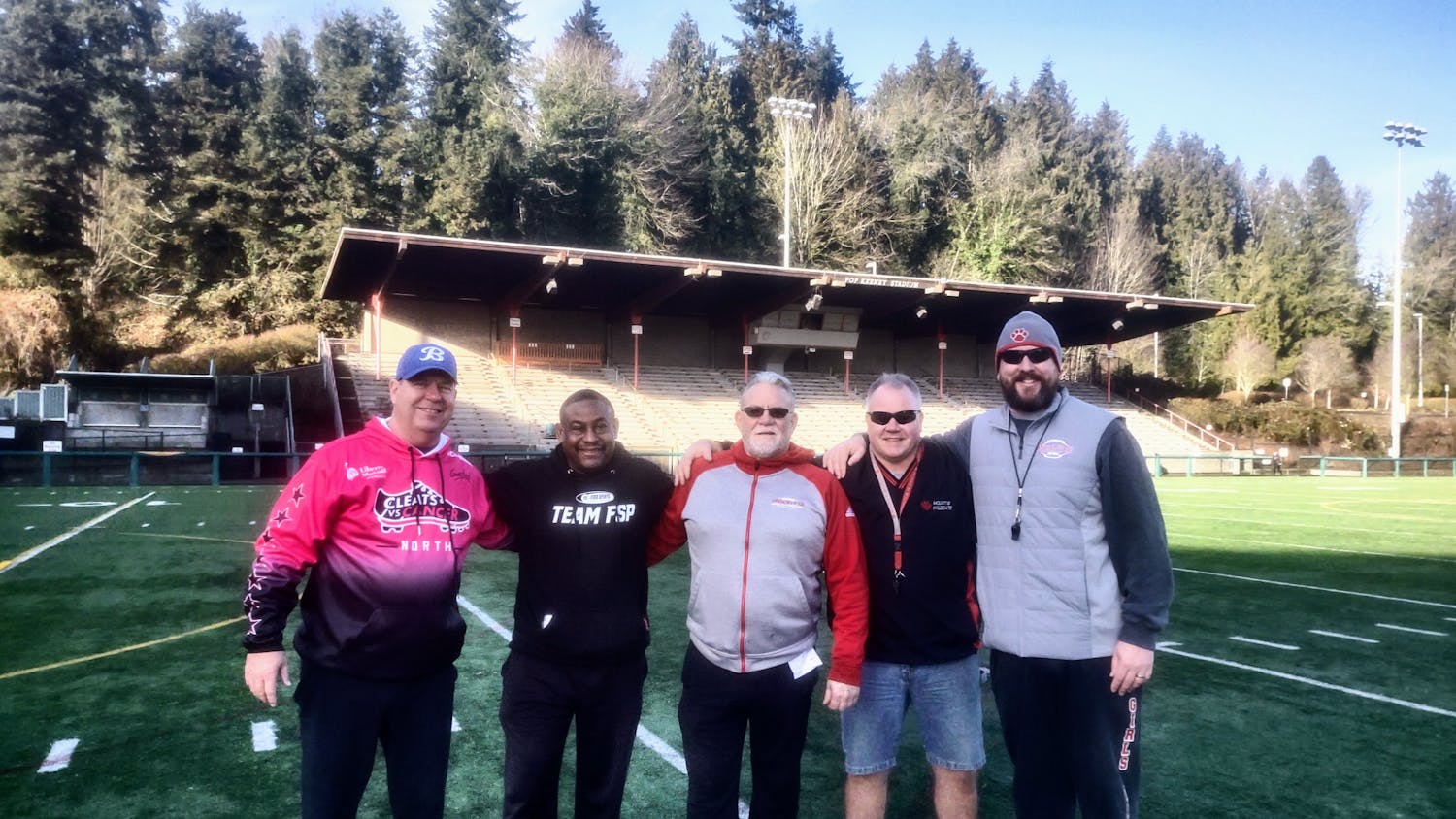Though Western Washington University’s sailing team has never brought on a coach, they still compete and sometimes win against big-name schools thanks to their dedicated student leaders.
This spring season, four of Western’s sailing team members placed second in a race against schools such as Stanford and UCLA, while ranking 7th out of 13 schools overall.
“It's a pretty cool feeling because we’re this small school up north,” said first-year and sailing team member Nathan Gerber. “We’re getting to race against Stanford and these big-name schools with really good teams, and sometimes we beat them.”
Western’s sailing team is part of a 20-team district, which includes the entire west coast as well as Hawaiʻi and Arizona.
“The competition is always somewhat cut-throat. Everyone’s after each other,” Gerber said.
However, off the water, the team is a close community. Since the sailing team is student-led, around 10 experienced team members rotate teaching sailing practices. Members vote their peers into five leadership positions every April. Past leaders then train upcoming leaders the remainder of the year.
While juggling a part-time job and being president of the Pacific Coast Collegiate Sailing Conference, junior Anna Morrow has taken on the position of co-captain for Western’s sailing team.
“It is super fun and fulfilling and worthwhile, but I'd have to say it's sometimes upwards of 30 hours a week,” Morrow said. “It can be a really big time commitment, but at the same time, it’s super rewarding, and it’s super fun to help keep the team running.”
The team practices on Lake Whatcom three days a week for three hours. Regattas, or sailing competitions, are held for around eight hours nearly every weekend.
“It is incredible how much experience we get, but it is also a huge time commitment,” said third-year and sailing team co-captain Caroline Hurley.
The sailing season spans all school year, from the second week of school through dead week in June.
Caitlin Sommers, the assistant director of sport clubs and intramurals, said the team needs approval for big purchases and has to fill out paperwork in order to travel. Other than that, the student leaders are on their own.
“Just yesterday, I was emailing back and forth with the Stanford head coach because they actually have a coach that’s paid full-time that organizes everything for them,” Hurley said.
Sommers also emphasized that Western’s sailing team manages a large budget. The team’s oldest boat is upwards of 30 years old and has grown to be unusable. New sailboats are at least $10,000. The team is budgeting in hopes of purchasing a new boat in the next couple of years.
Once a year, the team holds an auction and has fundraising events each quarter. Donations from alumni and student dues help fund the team. Though student dues are needed each quarter to fund the team, the team aims to be financially inclusive for those who aren’t able to pay. The team waives costs for students who can’t afford to travel.
“We would rather send someone who is qualified to go to that regatta than someone who can afford to go,” Hurley said. “We want someone who deserves to go more than someone who knows they can pay for it.”
Sommers said traditional sports had an easier time rebuilding their rosters after the COVID-19 pandemic than other lesser-known sports such as sailing. Western’s sailing team encourages interested students to join the team at the start of each quarter.
“We take pride in that we accept everyone no matter your skill level. If you're down to learn how to race a sailboat in a speedrun version or crash course and race within a few weeks of joining, that is totally possible,” Morrow said. “We are proud to let anyone join the team, whether they know about sailing or not.”
The team has around 20 members in the winter and 40 to 50 members in the fall and spring quarters.
“We have great sailors, and they share their knowledge, and we have some great people that are trying their best to learn,” Gerber said. “To make a team, it doesn’t take a coach or great funding, it just takes people, and that’s what we have. That’s what it takes to make a great team.”
Malia Fraser (she/her) is a sports reporter for The Front. She is studying journalism and environmental studies. In her free time, she loves to run and take care of her many plants. You can reach her at maliafraser.thefront@gmail.com.


